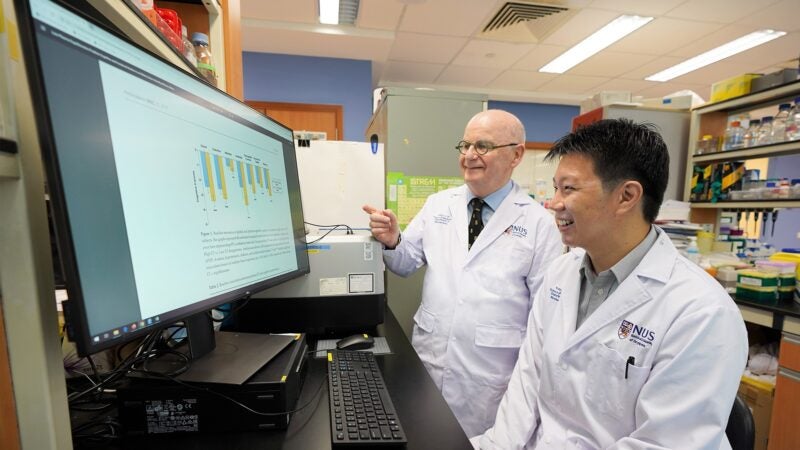
A joint study by the National University of Singapore (NUS) and the National University Health System (NUHS) has found that low levels of ergothioneine (ET) in blood plasma can help identify an increased risk of cognitive impairment and dementia.
Ergothioneine is a diet-derived compound that can be found in specific cells and tissues like the blood cells, eyes, liver, lungs, and brain. It can protect cells from a range of different forms of stress and toxins.
Published in the Antioxidants scientific journal, the study results can be used to develop possible therapeutic or early screening measures for cognitive impairment and dementia in the elderly.
The NUS-NUHS study showed the potential of ergothioneine as a predictive biomarker for cognitive impairment and dementia in elderly people.
The study involved over 470 elderly patients for a period of five years. It revealed that participants with lower levels of the compound showed poorer cognitive performance at the start of the study.
Besides, the study demonstrated a quicker rate of decline in cognitive and functional abilities over the follow-up period.
As per the results, there were structural changes in the brain seen from the magnetic resonance imaging (MRI) scans of the participants. These suggest that the relation between a low ergothioneine level in blood and cognitive decline was because of underlying disease pathology.
NUS Yong Loo Lin School of Medicine professor Barry Halliwell said: “Before this study, there was little evidence that ET levels in the blood can predict the risk of developing cognitive issues.
“The current study is significant because it measured the ET levels of elderly participants before developing dementia. Our findings demonstrate that if your ET levels are low, your risk of developing cognitive problems increases.”
In the study, the team measured levels of ergothioneine in the blood plasma of the participants, followed by assessment of their cognitive and functional abilities at different phases. They also studied the link between low levels of the compound and over time, the risk of cognitive and functional decline.
Based on the results, the research team aims to find further evidence of the compound’s preventive and therapeutic potential through a double-blinded placebo-controlled clinical trial. The team is currently recruiting patients over the age of 60 years with mild cognitive impairment.






